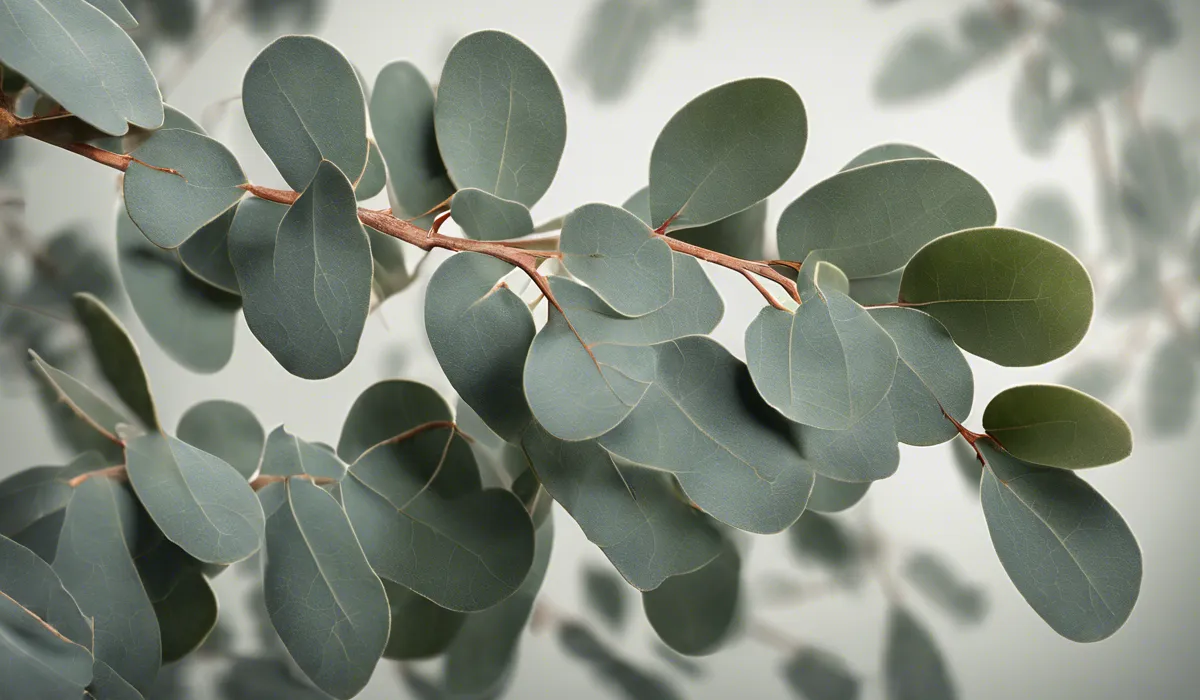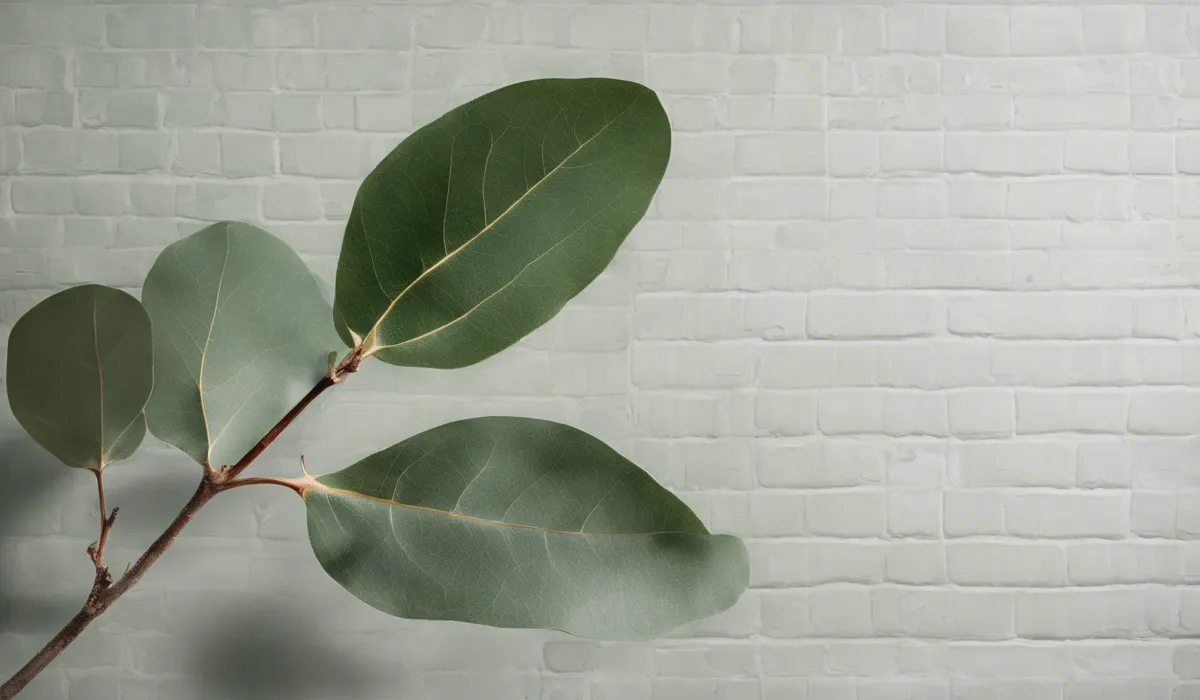Eucalyptus oil has antifungal properties and can help kill mold. It’s particularly effective when mixed with other agents like vinegar.
However, it may not eliminate all mold species. Always test a small area first and use proper ventilation.
Science Behind Eucalyptus and Mold

Natural Properties of Eucalyptus
Eucalyptus is a plant known for its strong fragrance and medicinal properties. Its oil, extracted from the leaves, contains compounds that are antibacterial, antifungal, and antiseptic in nature.
These properties make eucalyptus oil a popular choice for natural cleaning and health remedies.
The antifungal quality of eucalyptus oil, in particular, is beneficial in combating mold, which is a type of fungus.
Understanding Mold
Mold is a living organism that belongs to the fungi kingdom. It grows in multicellular structures called hyphae and reproduces through tiny spores that travel through the air.
Mold thrives in moist, warm conditions and can be found on various surfaces, both indoors and outdoors. It can be harmful to health and damaging to structures, making it important to control.
Research on Eucalyptus Oil’s Effectiveness
Studies have shown that eucalyptus oil can be effective in inhibiting the growth of certain mold species.
The oil’s active ingredients, like 1,8-cineole, have been observed to disrupt the growth and reproduction of mold spores.
However, the extent of its effectiveness can vary depending on the concentration of the oil and the specific type of mold.
Comparison with Other Remedies
When compared to other natural remedies like vinegar or tea tree oil, eucalyptus oil holds its ground as a potent antifungal agent. It is especially powerful when used in conjunction with other substances.
Chemical remedies, such as bleach, are often more aggressive mold killers, but they come with the drawback of being toxic and potentially harmful to the environment and human health.
Practical Application of Eucalyptus for Mold Prevention and Removal

Using Eucalyptus Oil for Mold Issues
Eucalyptus oil can be utilized in various ways to address mold problems. Sprays made with eucalyptus oil can be used on affected surfaces, diffusers can help reduce airborne spores, and cleaning solutions can incorporate the oil for regular household cleaning to prevent mold growth.
Step-by-Step Mold Treatment Guide
To treat mold with eucalyptus oil, start by diluting the oil with water or vinegar. Apply the mixture to the moldy area and let it sit for some time before scrubbing gently with a brush.
Rinse the area with clean water and dry completely to ensure that no moisture remains that could foster new mold growth.
Safety Precautions and Dilution Rates
When using eucalyptus oil, it’s important to remember that it should be diluted appropriately to avoid skin irritation or respiratory issues.
Typically, a dilution rate of 1 part eucalyptus oil to 10 parts water or other carrier liquid is recommended. Always ensure good ventilation when using the oil, especially in enclosed spaces.
Mold Prevention Tips for the Home
To prevent mold, keep humidity levels low, ensure proper ventilation, especially in areas like the bathroom and kitchen, and use eucalyptus oil in your regular cleaning routine.
Focus on areas that are prone to moisture, such as around the toilet flange, to keep them mold-free.
Limitations and Considerations When Using Eucalyptus Against Mold

Eucalyptus Oil’s Limitations in Mold Eradication
While eucalyptus oil can be effective against some mold species, it may not work on all types.
It’s also important to consider that it addresses mold at the surface level and may not penetrate deeply enough to eradicate large infestations.
Assessing Mold Infestation Severity
For minor mold issues, eucalyptus oil can be a good solution. However, if you’re facing an extensive infestation, it’s advisable to seek professional help.
Experts have the tools and knowledge to remove mold safely and effectively, particularly in areas where it’s difficult to reach, like within a ceiling box.
Long-Term Effectiveness of Eucalyptus
Using eucalyptus oil as a preventive measure can be effective in the long term, but it should be part of a comprehensive mold prevention strategy that includes controlling moisture and improving air circulation in your home.
Addressing Allergies and Sensitivities
Some individuals may experience allergies or sensitivities to eucalyptus oil. It’s vital to conduct a patch test before using it extensively and to consult with a doctor if you have concerns about allergic reactions.
Additionally, when using eucalyptus oil in spaces where pets are present, such as near a 2500 reel in a fishing gear storage area, be aware that certain animals may be sensitive to the oil.
FAQs About Eucalyptus Oil and Mold
Can eucalyptus oil kill mold?
Yes, eucalyptus oil has antifungal properties that can help kill mold, although it may not be effective against all mold species.
Is eucalyptus oil alone enough to eliminate mold?
Eucalyptus oil is more effective when mixed with other agents like vinegar but may not eliminate all mold species.
How should eucalyptus oil be used to treat mold?
Always test a small area first, mix with other cleaning agents like vinegar for better results, and ensure proper ventilation during use.
Do I need to take any precautions when using eucalyptus oil for mold?
Yes, use proper ventilation, wear protective gear if necessary, and test on a small area to avoid potential damage or adverse reactions.
Can eucalyptus oil prevent mold growth?
Eucalyptus oil’s antifungal properties may help inhibit mold growth, but it is not guaranteed to prevent it entirely.
Final Thoughts
Eucalyptus oil possesses antifungal qualities capable of combating mold, especially when combined with vinegar.
While it can be effective, it’s not guaranteed to eradicate all mold types. Before widespread application, conducting a spot test is advisable, and ensuring proper ventilation is crucial during use.
